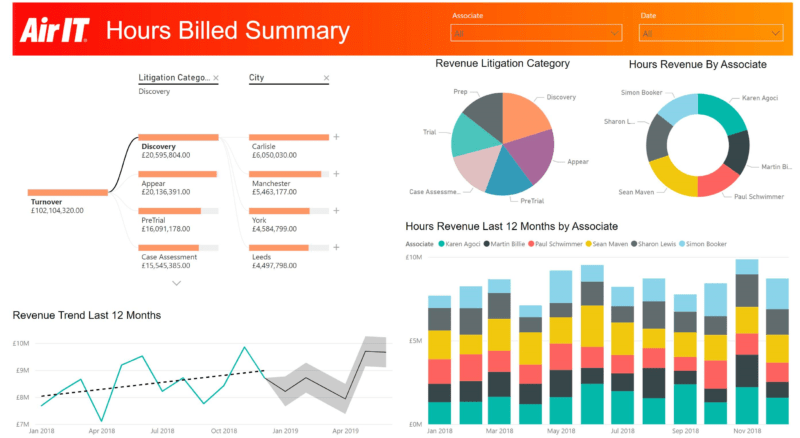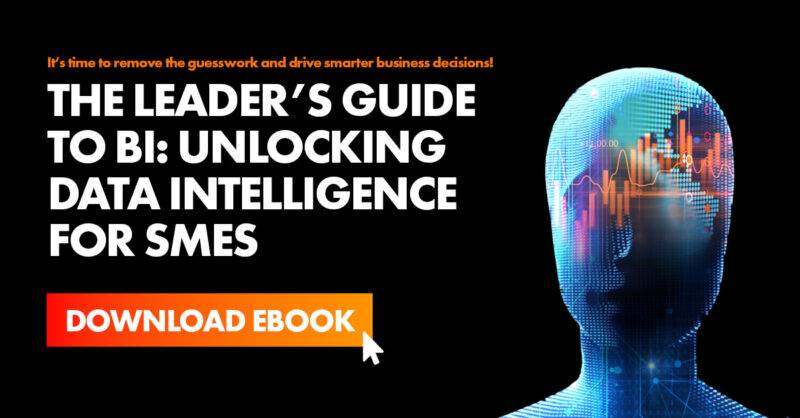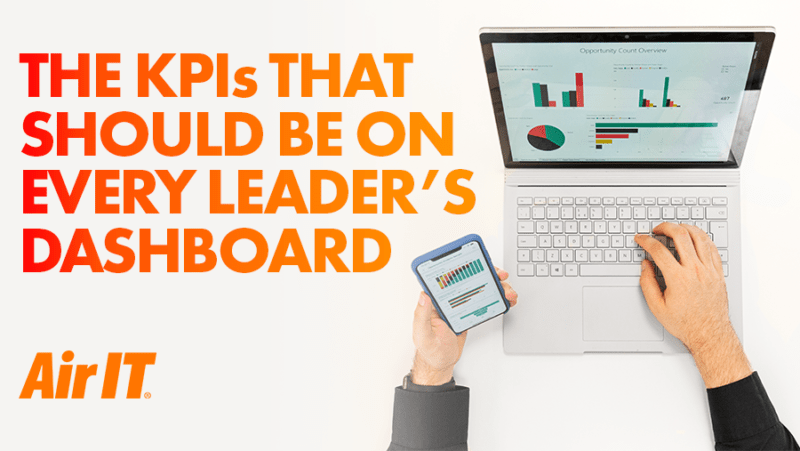Business Intelligence (BI) is revolutionising how businesses make decisions by turning raw data into actionable insights. In today’s data-driven world, companies rely on BI to stay competitive and informed. In this guide, we'll break down what BI is, how it works, and how organising business data can empower organisations to make smarter, more informed decisions.

What is business intelligence?
Modern Business Intelligence (BI) refers to the processes of collecting, organising, and analysing a company’s data to uncover valuable insights that drive informed decision-making and enhance overall business performance.
Why is business intelligence important?
Business Intelligence (BI) is crucial because it enables businesses to consolidate data from multiple sources, providing a comprehensive 360-degree view of operations. In the past, data was confined to spreadsheets and physical databases, but today, we generate vast amounts of data from every aspect of the business, for example, customer interactions, performance metrics, marketing campaigns, sales figures, finances, and more.
The challenge lies in the fact that much of this data is siloed in different systems and remains underutilised. Without a unified view, it’s difficult for business owners, directors, managers and decision-makers to get a full picture of business performance and make informed choices.
How does business intelligence work?
Business intelligence (BI) connects all of these disparate data sources and presents them in a visual, easy-to-understand format, creating a “single source of truth” for your business. The result is a dashboard or report that highlights key insights, such as trends, patterns, and outliers.
At the heart of BI are your Key Performance Indicators (KPIs) – metrics that reflect what matters most to your business. Whether it’s turnover, profitability, customer satisfaction, or employee retention, you can tailor your KPIs to align with your goals. The beauty of BI lies in its flexibility, allowing you to monitor, analyse, and act on data that directly impacts your success.

What problems can BI solve, and how can it help an organisation?
Business Intelligence (BI) is a game-changer when it comes to tracking and benchmarking Key Performance Indicators (KPIs). By continuously monitoring your business’s KPIs, you gain valuable real-time insights into performance. But BI goes beyond just generating static reports. It allows users to view trends and patterns as they emerge, providing a dynamic, up-to-the-minute picture of business health.
This marks a significant departure from traditional methods, where managers often spent days at the end of the month manually collecting and manipulating data to prepare reports for their teams or board members. BI streamlines this process, saving precious time and eliminating the bottleneck of monthly reporting.
More importantly, BI offers full transparency into business operations, enabling managers to spot inefficiencies or performance issues as they occur. By identifying problems in real time, businesses can take swift corrective action, rather than waiting for issues to snowball.
How can business intelligence support decision making?
With BI, businesses can make quicker, more informed decisions by spotting trends and anomalies as they happen. The ability to act on insights before they become outdated helps eliminate the guesswork and reliance on intuition that often cloud decision-making.
The “single source of truth” approach unites data from various business areas, ensuring consistency across departments. Instead of relying on data from multiple, disconnected sources, BI provides a cohesive view based on the same set of metrics.
This unified approach means that BI can be adopted across the entire organisation. Whether it’s seasoned data analysts or employees with no technical background, everyone can benefit from self-service analytics. Empowering all team members with data-driven insights ensures that everyone, from leadership to front-line employees, is on the same page when making decisions.
What tools and systems are available? Which is best?
When it comes to Business Intelligence (BI) tools, there are plenty of options, but Microsoft Power BI is industry-leading and stands out as one of the most popular and effective solutions available today – and also underpins the technology used in our Data & BI services.
Power BI is a cloud-based platform that enables users to visualise and analyse data in an intuitive, easy-to-understand format. It seamlessly integrates with both cloud-based and on-premise data sources, providing a comprehensive 360-degree view of a business’s operations and performance. This means that no matter where your data resides, Power BI can bring it all together for a unified, real-time analysis.
One of Power BI’s most powerful features is its collaborative capabilities. Multiple team members can work together on the same data, share insights, and co-create reports. This collaborative environment fosters alignment across departments and empowers everyone to make data-driven decisions, regardless of their technical expertise.
Moreover, Power BI is part of the broader Microsoft Power Platform, which has the capabilities to unlock other data technologies via Power Apps, Power Automate, and Power Virtual Agents (technology which is used by our team to deliver our Data & BI services). This integration allows businesses to build custom applications, automate workflows, and even create intelligent chatbots – all directly linked to the data insights generated by Power BI. By leveraging the full Power Platform ecosystem, organisations can enhance their BI capabilities and drive even more efficiency across operations.
This interconnectedness with other Microsoft tools within the Data Environment means that businesses can easily scale their BI efforts and tap into more advanced analytics, making Power BI a versatile choice for organisations looking to turn their data into actionable insights.
Examples of business intelligence in use
Business Intelligence (BI) is far from a one-size-fits-all solution. It is highly adaptable and can be utilised by organisations of all sizes, across every sector. Whether you’re a small startup or a global enterprise, BI allows you to monitor performance, track trends, and make informed decisions. It empowers businesses to process data more quickly and efficiently, turning raw insights into actionable, strategic moves.
Here are a few examples of how companies around the world have successfully leveraged Business Intelligence to enhance their operations.
- Govia Thameslink Railway (UK): In the wake of the pandemic, Govia Thameslink Railway turned to Power BI to streamline essential service data, such as ticketing and HR information. By utilising self-service reporting and real-time analysis, leaders and planners were able to make quick adjustments to train timetables, prioritise routes for key workers to hospitals, and optimise shift times. With BI, the team can now make data-driven decisions, anytime, anywhere, ensuring smooth operations even during a crisis.
- Miami Heat (USA): The Miami Heat basketball team has saved over $1 million by using Power BI to gain a comprehensive 360-degree view of their customers, operations, and fan engagement. Real-time insights, such as crowd density, spending habits, and customer traffic patterns, are sent directly to employees’ mobile devices, enabling them to optimise fan experiences, improve resource allocation, and reduce wait times. Additionally, by integrating online retail and social media analytics, the team has successfully retargeted customers based on stored fan profiles, leading to a 10x business growth and a 20x return on investment from social media engagement.
- Metro Bank (UK): Metro Bank has experienced significant growth after introducing Power BI across their operations. By tracking key metrics such as call centre performance, transaction volumes, and customer demographics, they are able to better understand customer behaviour and improve service delivery. Power BI helps them identify peak times, optimise staffing, and monitor online and in-branch activity, enabling managers across the country to make data-driven decisions that enhance the customer experience.
Want to learn more about business intelligence and Power BI?
At Air IT, we understand the challenges business owners face in today’s fast-paced world. As a Microsoft Solutions Partner for Modern Work, Data & AI Azure, and Infrastructure Azure, we’ve invested heavily in both technology and talent to build a dedicated Data, Automation, and Power Platform team. Our expert team is here to help you leverage the full potential of Business Intelligence (BI) to drive growth and efficiency.
Want to see how BI can transform your business? Download our free ebook ‘The Leader’s Guide to BI: Unlocking Data Intelligence for SMEs’.





